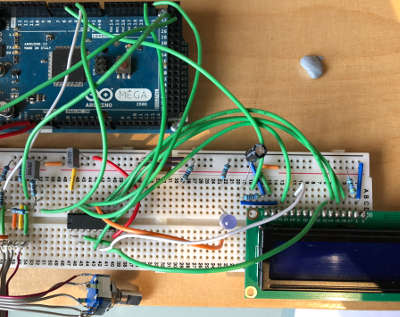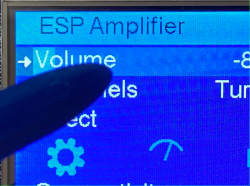Arduino Button presses that are handled like events
Have you ever wanted to treat button presses in Arduino similar to other languages, where you get an event callback when the switch is pressed? Look no further, the IO abstraction library can do that with very little fuss. In fact it can also do the same for rotary encoders as well, treating them similar to how scroll bars work in desktop applications. To start we need to get the IoAbstraction library and open the buttonRotartyEncoder example.
Programming Arduino using tasks instead of loops - tutorial
In this tutorial for TaskManagerIO I explain the differences between traditional loop based programming; which is very common on the Arduino platform and event based programming based on taskManager. Although event based programming looks slightly more complicated at first, as the sketch and surrounding code gets more complex, eventing will scale to that much easier. Eventing task frameworks make ongoing maintenance much easier. Example: Two LEDs blink at different rates. Let’s first take a look the traditional loop based approach, we’ll start by setting things up:
Task Manager - Spin Lock guide
Task Manager supports the concept of Spin Locks to protect sensitive asynchronous operations from becoming interleaved. For example, to protect sensitive blocks of code. Be very aware that this does not include a memory barrier. A spin lock loops waiting for the lock to become available, you can either spin for a period of time, or until the lock is acquired. While waiting for the lock in the spin, TASKS DO NOT RUN, and you must never call yieldForMicros while holding a lock.
All library - Cross platform build support
Moved, see [arduino-libraries.md] for the list.
IoAbstraction - Cross platform build support
Arduino library compatibility matrix and build time settings General Arduino On all devices we try to configure the device to the highest precision possible, and provide read and write methods based on float values between 0 and 1. Notes for mbed For mbed we support mbed V5 and V6 Bare-Metal and RTOS. Pins are managed using the underlying gpio methods. Interrupts are managed using InterruptIn. Analog input PWM output, and DAC output are all supported, DAC output is only enabled when the board has an onboard DAC.
Marshalling interrupts into TaskManagerIO tasks
Interrupt handling is generally an advanced topic, but this library provides a very simple way to handle interrupts. There are two ways to handle interrupts in TaskManagerIO, the first is by marshalling, and the second is by writing an event. We recommend that all new code uses the event method to handle interrupts, although we have no plans to deprecate the method below. When you tell the library to handle an interrupt, the library registers the interrupt handler on your behalf, then when the condition is met the internal handler is triggered, it sets a flag to tell the library an interrupt has been raised.
Touch screen support that works on all Arduino and mbed boards
IoAbstraction includes support for touch screens. The support is built in layers to allow for different drivers to be added over time. However, at the moment there is support for resistive touch screens on analog pins. This library can work with such touch screens regardless of analog input resolution, as long as the device is supported by IoAbstraction. As with switches and rotary encoder support, this component deals with debouncing the user input and also working out if the user has selected or held, therefore supporting drag operations.
Creating interrupt and threaded events with TaskManager
In this guide we assume that you are familiar with the API for scheduling tasks on task manager. Let’s first discuss what we consider an event to be, and what it means to be an interrupt or threaded event. Interrupt or threaded events are subject to external actors (such as threads or interrupts). In this case the event will invariably be triggered by an external event. However, task manager will still ask your event class instance if it is ready to be triggered yet by polling, but in this case you have two choices as listed out below:
How to create a polled event with TaskManager
In this guide we assume that you are familiar with the API for scheduling tasks on task manager. Let’s first discuss what we consider an event to be, and what it means to be a polled event. By polling we mean no external actors (such as threads or interrupts) are involved. Task manager will ask your event instance frequently if it is ready to be triggered yet, if it is not then task manager will take your instruction on how long to wait, and then call again.
Scheduling tasks with Task Manager on Arduino and mbed
Using TaskManager in your sketches TaskManager is a very simple co-operative coroutines / executor framework that allows work to be scheduled in an internal queue. Instead of writing code using delays, one simply adds jobs to be done at some point in the future. In addition to this, interrupt handling is also supported, such that the interrupt is “marshalled” and handled like a very high priority task to be processed immediately.





